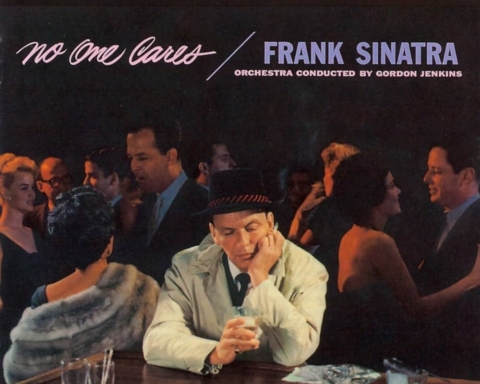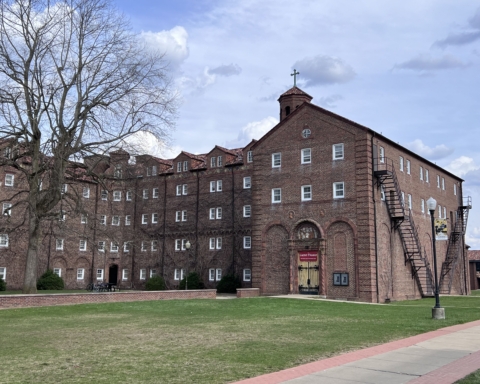There’s no debating it: Luca Guadagnino’s “Call Me By Your Name,” a nominee for Best Picture at the annual Academy Awards, is controversial. It’s also captivating, inquisitive. It makes viewers think about, in a historical context, what “coming of age” means when one is simultaneously “coming of self” in the shoes of their sexuality.
The film is set in 1980s Lombardy, Italy, focused on the precocious Elio Perlman, played by Timothee Chalamet – the son of a Jewish professor, an academic working abroad in the United States. As part of a mentorship program, Elio’s father brings a doctoral student to Italy each summer – one whose proven their academic vigor and willingness to endure archeological digs alongside the bright-minded, patriarchal figure of the Perlman household.
This summer, Oliver, played by Armie Hammer, is that privileged student. Oliver storms the house in a confident, self-assured fit. His American vernacular, parting with a nonchalant “later” at the summation of every meal, charms the family. That verbal charm, matched by a well-mannered air to traversing new lands, sparks cultural conversation affront a backdrop of the affluent family’s Italian countryside property. In short: connections are made quickly.
Still, Elio takes time warming up to a new body in the home. Naturally, though, he adjusts. After all, he’s not the typical 17 year old. He’s thoughtful in his social approaches, rather than making decisions on a whim. He reads fervently. He thinks strategically. He lives effortlessly – and maturely, nonetheless. Still, he’s flawed with demons to bear.
That adaptability in the wake of uncharted sexual confusion sparks an unprecedented interest in Elio for Oliver. Amidst summertime romance with a female in his age cohort, Elio falls for Oliver.
Blindsided by unexpected lust, Elio asks the family’s maid where Oliver is in his absence, his parents if he can show Oliver around the local community and his father if he can attend their fieldwork outings. In a paramount turning point in the film, Elio leaves a note under Oliver’s guest room door, reading, “Can’t stand the silence, need to speak to you.” To that, Oliver returns a note, asking Elio to meet him on the estate balcony at midnight.
But what starts off as an ordinary crush becomes a reality in that meeting. Elio pursues Oliver – and that’s where the film’s controversy begins – and for good reason. There’s a nearly seven-year age gap between the two and, although the film is set around three decades ago, abroad (at a time with incomparably more lax consent laws), it’s easy to understand the pushback the filmmakers experienced. Honestly, after being shown the trailer by a relative, I was conflicted by that age gap, as well. I assumed correctly, though, that it was worth the watch given a Best Picture nomination in an age of commonly faulty plotlines and sub-par acting. See, there’s so much more to consider than an age gap with “Call Me By Your Name.” Watching the film made me uncomfortable at points – but the reality of “coming of age” while coming to understand one’s sexuality is anything but comfortable for some. More so, the stakes in that risk process of self-actualization were far higher for Elio than most living in modern-day America. Elio lives in a religious household in the 1980s, a home where the only exposure Elio has to gay figures is his parent’s friendship to a gay couple – only visiting occasionally.
Guadagnino strategically conflicts viewers, making them question the terms many experience sexuality under – all due to societal constraints and an inability to understand the feelings one has for those of the same gender.
As I see it, Elio and Oliver’s relationship is inappropriate, but the film is told from Elio’s perspective. A true masterpiece in film isn’t supposed to take a stance, but to show a reality. Here, we feel Elio’s very real struggle, we watch him act on his lustful urges and, in turn, find loss.
The film peaks with the end of Oliver’s trip, where Elio leaves him at the train station – staring at his first, and dysfunctional, shot at experiencing his sexuality, as it fades into the ironically hopeful Italian countryside.
The final moments of the film come to a close with an intimate monologue by Elio’s father, as a distraught Elio sits in secrecy in the family living room. Beside his father, the paternal figure speaks of fading love with age and this love for his son, no matter the relationships he falls within. Elio effectively comes out to his father through evident upset, receiving the most uplifting reaction a gay person can hope for, especially given the time period.
The twisted irony of “Call Me By Your Name” is simple: The last five minutes of the film – this beautiful, fatherly monologue of acceptance – should’ve been the opening chapter for Elio, hurt and picking up the pieces of an unexpected discovery process, sparked by nature and kept secret by nurture.
On a fundamental level, “Call Me By Your Name” traverses the rocky roads many face in coming to understand an inherent trait behind closed doors – the pain, heartbreak and confusion that can bring.

Jams with Joseph: “No One Cares” By Frank Sinatra is a timeless classic
JOSEPH DEBELL: OPINION EDITOR Album cover is courtesy of @sinatra on Instagram





